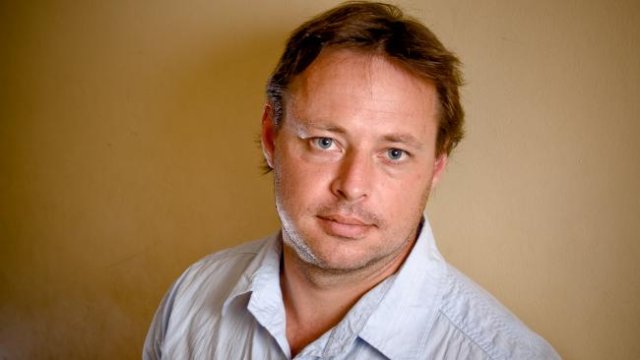
A common right-wing perception is that one either is, or is not, a member of David Hicks’ “cheer squad”.
Chris Merritt, reviewing this book in the October 22 Australian, actually referred to a Hick’s “cheer squad”. Merritt lamented: “The whole appalling story of his treatment by the US military commission would be trotted out.”
Trotted out? A clever way to admit that what Hick’s says is true, but at the same time trivialise the details.
I am not sure what Hicks’ personal views have been on a number of issues, and not addressing them is perhaps a weakness of the book.
Apparently, he has made some anti-Semitic comments, which he now says “makes me cringe”, but the exact content of the comments is not repeated in 456 pages.
And yes, he does brush over the exact nature of his military training which he received (legally) in other countries.
The book also dwells on his early life — it is not till page 213 that he starts to talk about his arrival in Guantanamo.
The man who first entered a mosque not knowing how to pronounce the word, first learnt of the terrorist attacks on the US in 2001 from TV.
“I watched the movie called The Seige about terrorist attacks in New York leading to a declaration of martial law. When it was finished, I flicked through the other channelS to see what else was on.
“I came across footage of a plane crashing into a building, but thought it was just another military thriller. Finding nothing to watch, I flicked back to the channel with the plane and realised it was not a movie at all, but the real thing.”
The books’ details of Hicks’ mistreatment are consistent with the content of official investigations and first-person accounts from other former Guantanamo detainees.
There were the punches and kicks, but also the injections and pills, the nature of which is still a mystery. At one point, he had two lumps surgically removed from his chest, but their pathology is unknown — the US government still refuses to release his medical records.
He was put in “stress positions”. The effects of Hicks’ mistreatment continue: he has needed extensive teeth repairs, has a healed fracture in his right hand (the result of a kicking), has herniated discs and suffers anxiety attacks.
He has to use his own money — what little of it he has — to help fix medical problems caused by his torture.

He describes the mistreatment of other detainees. Some were stopped from going to the toilet so that they would soil themselves. Others were held in cold conditions or confined to small areas and pepper sprayed.
There is the story of the female interrogator who smeared her menstrual blood on a bound prisoner. The US government admitted the incident but said the blood was fake. Compulsory nudity was routine and there was widespread use of water-boarding.
The orange overalls worn by detainees were a source of fear, as orange overalls are worn by those awaiting execution in some Middle Eastern countries. Hicks tells that the senior commanders at Guantanamo were “delighted” by the coincidence.
“Then there were the silly things”, Hicks says, “like throwing handfuls of pork bits into detainees’ food or playing Don McLean’s ‘American Pie’ over loudspeakers.
During one of the forced plane transportations before arriving at Guantanamo, Bruce Springsteen’s ‘Born in the USA’ was played loudly as the surrounding US soldiers sang in unison.
Ironically, they must not have known that the song contains lyrics criticising America’s involvement in Vietnam.”
A delegation from ASIO, the Australian Federal Police and a representative from the Australian Embassy in Washington toldHicks that he would be allowed to leave only if he pleaded guilty to some offence.
More helpful were the International Committee of the Red Cross, whose visits and criticisms really did improve conditions.
Also helpful were Hicks’ lawyers: Major Michael Mori of the Marine Corps and his Australian lawyers, Steven Kenny, David McLeod and Michael Griffen.
Hicks eventually agreed to a plea bargain deal, pleading guilty in June 2004 to essentially imaginary offences. It was during these plea bargain negotiations that Hicks received a message from Australia’s then-Prime Minister, John Howard.
“Mori then relayed a message to me that had originated in Australia. John Howard told one of his staffers who told Mori to tell me that under no circumstances would he let me return to Australia without my entering a guilty plea. Mori added that he was not surprised, because Howard needed to justify leaving me in Guantanamo for all those years.”
Hicks eventually returned to serve time in an Australian prison. Once released, he was subject to a control order that has now expired, but petty persecution has continued, including threats to take away any profits he might make from the sale of this book.
Comments
Anonymous replied on Permalink